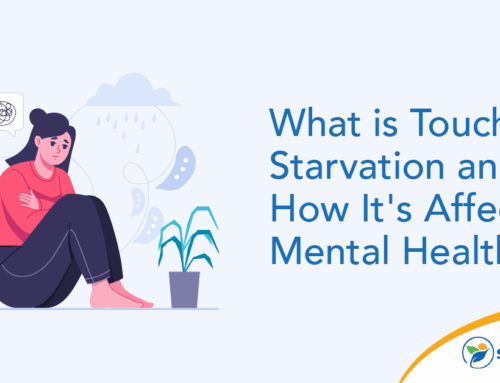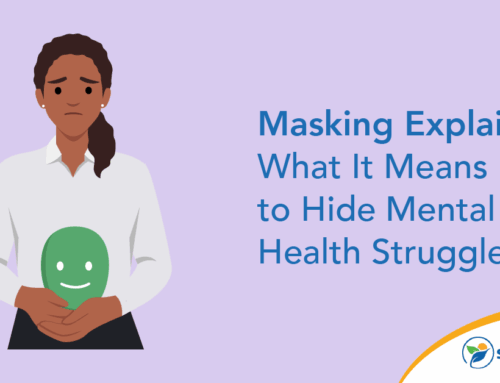Healthy people tend to feel a variety of emotions throughout the day. However, if you’re experiencing emotional numbness, you may struggle to feel happy, excited, energetic, angry or frustrated. Emotional blunting and its symptom, anhedonia, inhibit your ability to enjoy life and may interfere with your job, hobbies, education and personal relationships. Fortunately, mental health treatment programs could relieve the numbness and teach you how to reconnect with your feelings.
What Are Emotional Numbness and Anhedonia?
Emotional blunting, a consistent feeling of numbness, can occur with various mental health conditions. It refers to the loss of the ability to feel emotions in both positive and negative situations. Anhedonia is a symptom of emotional blunting that makes it nearly impossible to feel pleasure, even when engaging in activities you normally enjoy.
Causes and Conditions That Contribute to These Symptoms
Emotional blunting and anhedonia can have a range of possible causes, including:
- Depression
- Schizophrenia
- Bipolar disorder
- Post-traumatic stress disorder (PTSD)
- Traumatic brain injury (TBI)
- Substance use disorder
With one common cause of emotional blunting, major depressive disorder (MDD), a chemical imbalance can make it difficult for your brain to produce “happy chemicals,” such as dopamine and serotonin. Certain medications prescribed to treat depression, such as selective serotonin reuptake inhibitors (SSRIs), may worsen emotional numbness.
While schizophrenia is known to cause delusions, hallucinations and disorganized thinking, the condition may also produce negative symptoms, such as social withdrawal and an inability to show emotion or feel pleasure.
People with bipolar disorder may cycle between manic and depressive episodes. During a depressive episode, they may exhibit symptoms of MDD, such as fatigue, weight loss, oversleeping, poor concentration and a loss of interest or pleasure in activities.
A traumatic brain injury (TBI) may result from a severe blow to the head. After a TBI, individuals might experience mood swings, sleep disturbances, depression and other emotional issues. Minor TBIs could eventually heal, while serious injuries may result in permanent damage.
Substance use disorder can lead to depression, fatigue, lack of emotion and motivation, memory issues and energy loss. Users may need increasingly larger doses of a substance to keep getting the short-lived high it provides, trapping them in a vicious cycle.
How These Symptoms Impact Daily Life and Relationships
In a recent survey, 87.9% of people with depression reported that their symptoms made it difficult to function normally. When depression causes emotional blunting and anhedonia, a person may feel apathetic and empty. They can lose interest in pursuits they once enjoyed, such as going to the movies, engaging in hobbies or socializing with friends.
As a result, individuals dealing with emotional blunting tend to isolate themselves. They may end friendships, break up with romantic partners, lose their jobs or decline to attend family get-togethers. Without support, their condition can worsen until happiness becomes a distant memory.
Recognizing When Professional Help Is Needed
Many people experience emotional blunting when they’re going through a challenging time. However, if your symptoms don’t resolve on their own or start to interfere with your daily life, you may need professional help. If left untreated, the condition causing your emotional detachment could lead to thoughts of self-harm or suicide.
Treatment Options for Regaining Emotional Connection
Various methods are used to treat the underlying causes of emotional blunting and anhedonia. Individuals who require 24-hour care usually start with inpatient treatment. Once you’re ready to start living independently, you’ll transfer to an outpatient program. Depending on your diagnosis and its severity, a personalized treatment plan may include:
- Individual, family and group therapy
- Cognitive behavioral therapy (CBT)
- Dialectical behavior therapy (DBT)
- Medication management
- Yoga classes
- Aftercare planning
If you’re diagnosed with a mental health disorder, such as PTSD or bipolar disorder, you can undergo therapy to help you process your feelings and develop healthy coping skills. Some people attend family therapy to build better relationships with their loved ones.
People diagnosed with schizophrenia or depression related to a chemical imbalance are often treated with medication. After assessing your condition, a psychiatrist can prescribe medication and monitor your progress. If no improvement is experienced or other symptoms develop, the doctor may change your dosage or try a new prescription.
If you’re dealing with a TBI, the treatment options vary depending on the severity. Some individuals need intensive care to increase their chances of recovery. Others simply need therapy and medication to help them adjust to their new life situation.
If you’re feeling numb due to a substance use disorder, treatment may begin with a medical detox. This allows you to receive care in a safe, controlled environment while the substance leaves your system. Afterward, you can enter an inpatient program to treat any underlying conditions.
Coping Strategies While in Recovery
Mindfulness is one of the most important coping strategies you can learn in recovery. When you’re focused on the past or future, it’s easy to lose sight of the present. Mindfulness teaches you to slow your racing thoughts and focus on what’s happening now. This can turn an ordinary task, such as washing dishes or eating a meal, into a calming, meditative practice.
When you’re feeling numb, meditation could help you reconnect with your emotions. Find a quiet place and take a few deep breaths, then direct your attention to your breathing. Instead of chasing after stressful thoughts, you simply let them go. The silence could bring up thoughts and feelings you assumed you’d forgotten about.
If you can’t meditate, staying in the present moment is another popular mindfulness technique. This involves paying attention to the task at hand and noticing sensory details, such as light shining through a window, water on your hands or the smell of soap in the air. When you start living in the moment, you realize that the past and future are merely images in your mind.
Therapy also teaches you how to regulate your emotions. When you look at situations objectively without worrying or making assumptions, you conserve energy and experience less burnout. This may reduce your symptoms and help you fully experience your emotions.
Seek Help for Emotional Blunting
Mental health conditions, such as depression, PTSD and substance abuse disorder, can make it difficult to feel anything but sadness and fatigue. Sunlight Recovery’s inpatient and outpatient programs target the underlying cause of the issue so you can move forward and enjoy life again. Reach out today to discuss our services.







